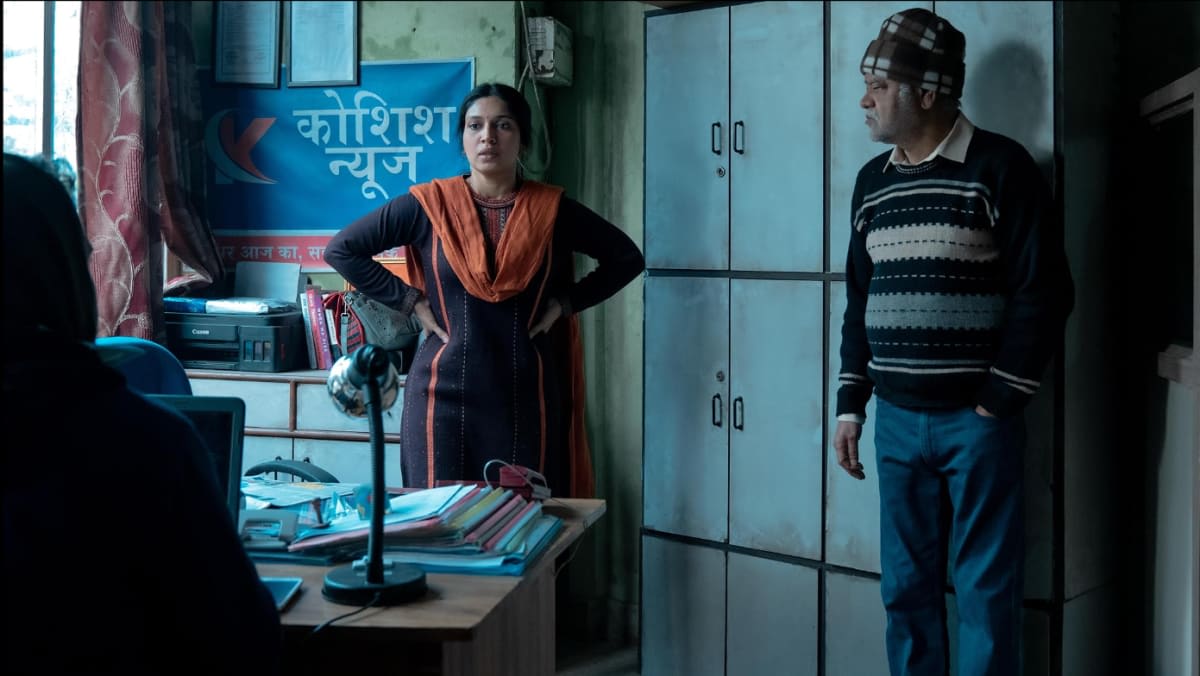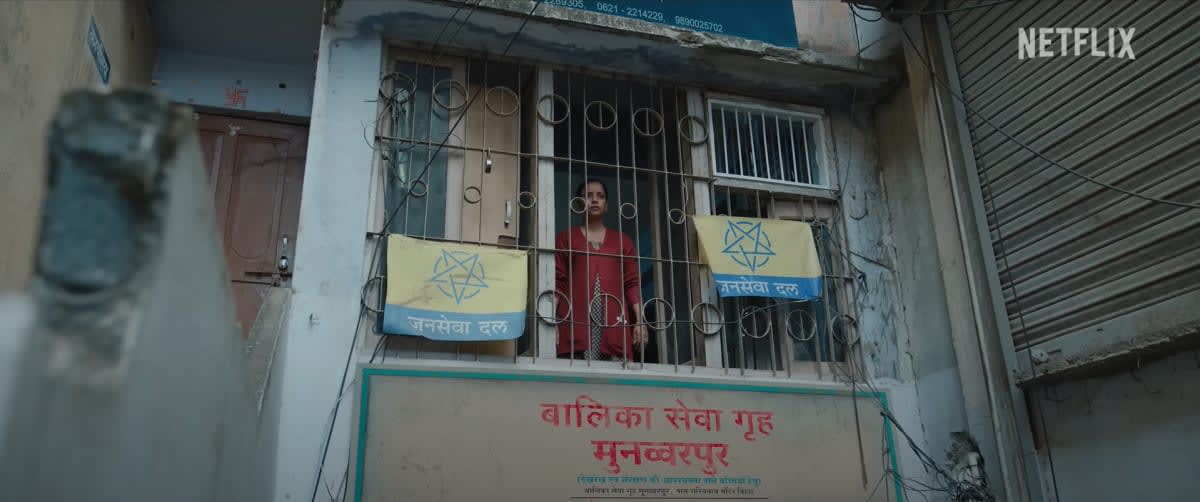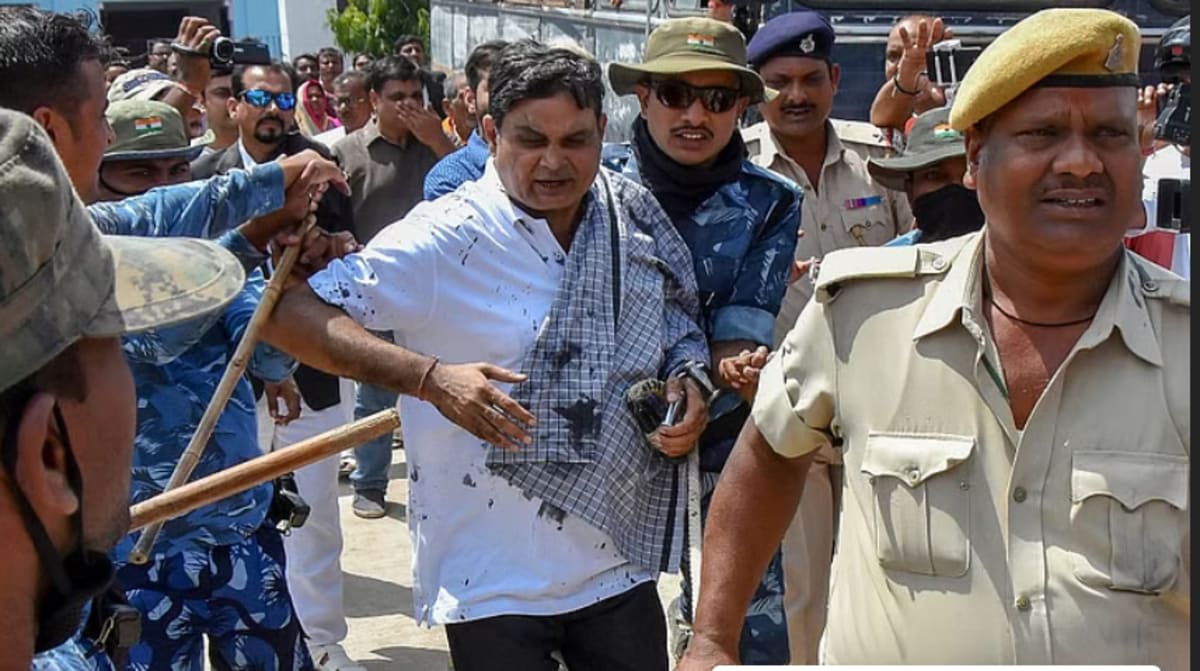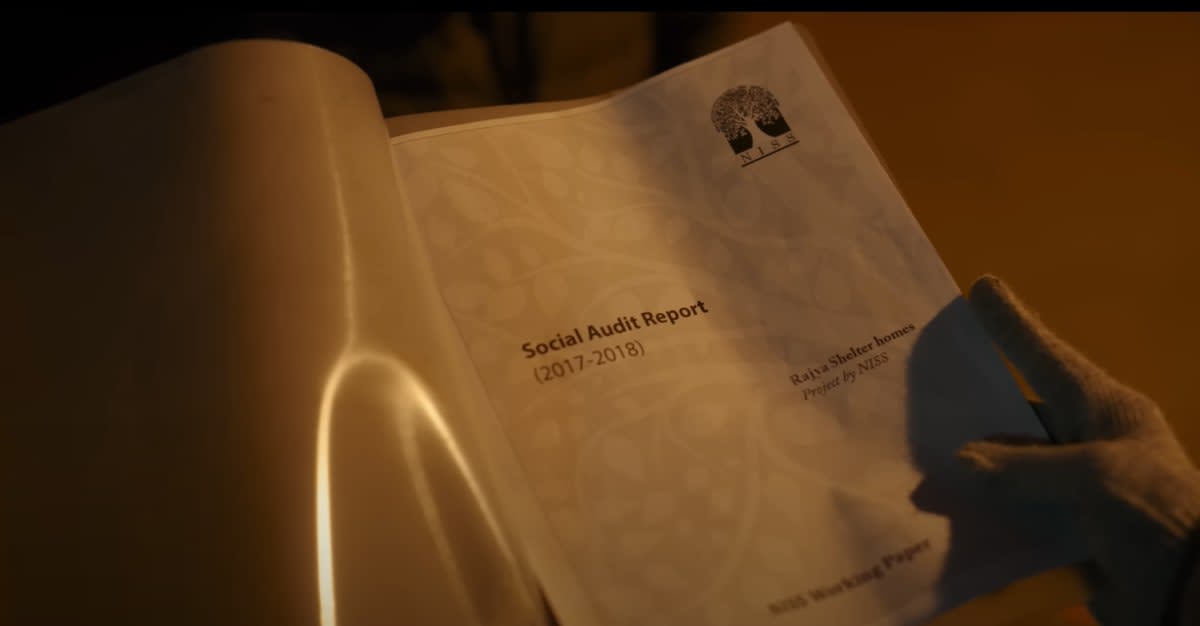‘Bhakshak’: All about the chilling Muzaffarpur shelter home case that inspired Netflix's crime-drama film

Warning: Graphic content, readers’ discretion advised
BIHAR, INDIA: Get ready for a gripping investigative crime drama as Indian actress Bhumi Pednekar takes the lead in ‘Bhakshak’ (meaning: predator), set to premiere on Netflix on February 9.
Directed by Pulkit, this Indian film is making waves worldwide, reportedly drawing inspiration from real-life events surrounding the chilling Muzaffarpur Shelter Home Rape Case.
The harrowing tale unfolds against the backdrop of a shocking scandal, mirroring the disturbing incidents that transpired in Muzaffarpur, Bihar, India.

Although the creators have not officially acknowledged its source of inspiration, ‘Bhakshak’s narrative appears to draw parallels with the actual events of the real-life case.
What is the Muzaffarpur shelter home case all about?

The Muzaffarpur shelter home case, a shocking revelation that unfolded in 2018, exposed a disturbing racket of sexual abuse of several young girls, including minors, within 110 shelter homes audited by the Tata Institute of Social Sciences (TISS), in Bihar, India, as per The Quint.
Delhi court convicts Brajesh Thakur, 18 others in Muzaffarpur shelter home case https://t.co/n4U6WPIyCN pic.twitter.com/7FsFRDvjAu
— The Times Of India (@timesofindia) January 20, 2020
The TISS report brought to light grave concerns, particularly at the Balika Grih in Muzaffarpur, managed by the NGO Seva Sankalp Evam Vikas Samiti, headed by local politician Brajesh Thakur.
In a medical examination, the sexual abuse of 34 out of 42 of the girls living at the shelter was confirmed, as per the source outlet.
The Bihar police reportedly took swift action a month after the TISS report, charging 11 individuals, including Thakur, Dilip Kumar Verma, chairperson of the Muzaffarpur District Child Welfare Committee, Vikas Kumar, a committee member, Ravi Roshan, a child protection officer, and Rosy Rani, assistant director of the child protection unit.
The case gained further attention when the Patna High Court, spurred by media reports and two PILs, took suo motu cognizance. Following this, the inquiry was shifted to the Central Bureau of Investigation (CBI).
In August 2018, the Supreme Court, viewing the incident as "state-sponsored," questioned the verification of Thakur's NGO credentials, highlighting potential state involvement.
The CBI, after recording statements from victims-turned-witnesses, reportedly charged 20 individuals in the case, including nine women, as per the outlet.
In February 2019, the Supreme Court transferred the trial to a Delhi court. After 11 months, on January 20, 2020, Sessions Judge Saurabh Kulshreshtha convicted 19 people, including Thakur, Verma, Kumar, Roshan, and Rani.
The women accused faced convictions for criminal conspiracy, sexual harassment under Section 12 of the POCSO Act, abetment of crime, and violations of the Juvenile Justice Act.
Brajesh Thakur, the prime accused, faced multiple convictions, including rape, gang rape, criminal conspiracy, aggravated sexual assault under the POCSO Act, and offenses under the Juvenile Justice Act.
The case stands as a stark reminder of the challenges surrounding child protection and the imperative need for stringent measures against such heinous crimes.
Who is Brajesh Thakur?

Brajesh Thakur, the founder of the Seva Sankalp Evam Vikas Samiti NGO and former Bihar People's Party MLA, emerged as the central figure in the grotesque tale.
His alleged role as the mastermind, orchestrating a reign of terror within the Muzaffarpur shelter home, led to his conviction in 2020 on charges of aggravated sexual assault, gang rape, and other appalling crimes against minors.
Thakur, once a trusted community figure, exploited his position to perpetrate unspeakable acts against the very individuals he was entrusted to protect.
The docu-series aims to strip away any semblance of misplaced trust, presenting a stark reminder that monsters can lurk even in positions of authority.
What happened to Brajesh Thakur?
Prompt government action followed the revelations, with the immediate relocation of the victims and the filing of an FIR against 11 accused, including Brajesh Thakur.
The Supreme Court acknowledged the severity of the case, leading to its transfer to the Central Bureau of Investigation (CBI). The legal proceedings uncovered the extent of the horrors and eventually resulted in life sentences for Thakur and 18 others.
What is the Koshish Project?

In June 2017, researchers, led by Mohammed Tarique from TISS, approached Atul Prasad, then Secretary of the Social Welfare Department in Bihar, seeking permission to assess private shelter homes.
Prasad recommended including government shelters in a comprehensive survey of 110 homes, as per a report by The Print. The mandate was to identify best practices and propose strategies to improve living conditions.
During the survey, TISS researchers reportedly uncovered complaints of harassment and sexual abuse in 15 shelter homes involving minors.
Nonetheless, the April 2018 report, authored by a seven-member team of young psychologists of TISS' field-action project called the ‘Koshish Project’, revealed distressing instances of "physical and sexual violations" affecting numerous young girls, with a particular focus on the Muzaffarpur shelter home.
In response, the department took action, filing an FIR in May 2018 at Muzaffarpur's women's police station, urging "suitable action" for the affected girls identified by the TISS team.
The revelations, brought to light through the ‘Koshish Project’, played a crucial role in initiating necessary measures to address the distressing conditions faced by young girls in these shelter homes.
What was the outcome of the case?
In August 2018, the Supreme Court requested reports from both central and state governments in the Muzaffarpur shelter home case. Following the revelations, the Bihar government reportedly suspended six assistant directors from the social welfare department for delaying the TISS report.
The Supreme Court initially restricted media publication of shelter abuse reports, later clarifying its order, social welfare minister Manju Verma allegedly resigned due to the shelter abuse case and her husband's Arms Act case in Begusarai.
In June 2019, the Supreme Court directed the Bihar government to reunite eight shelter-home girls with their families, providing financial and medical assistance.
In February 2022, the Bihar government submitted an action-taken report to the NHRC, claiming compensation payments ranging from Rs 3 lakh to Rs 9 lakh for 49 victims, as per The Indian Express.
Where are the Muzaffarpur shelter home victims now?
As the legal battles unfolded, the survivors faced the arduous journey of rebuilding their lives. Some found solace with their families, while others embarked on the path of recovery and healing.
The release of ‘Bhakshak’ on Netflix brings the Muzaffarpur Shelter Home Tragedy back into public consciousness, emphasizing the specific challenges faced in Muzaffarpur, Bihar.
Partially inspired by the real-life Muzaffarpur shelter home case, ‘Bhakshak’ is all set to release on Friday, February 9.
If you or someone you know may be the victim of child abuse, please contact the Child Help National Child Abuse Hotline at 1-800-4-A-Child (1-800-422-4453) or contact their live chat services.










